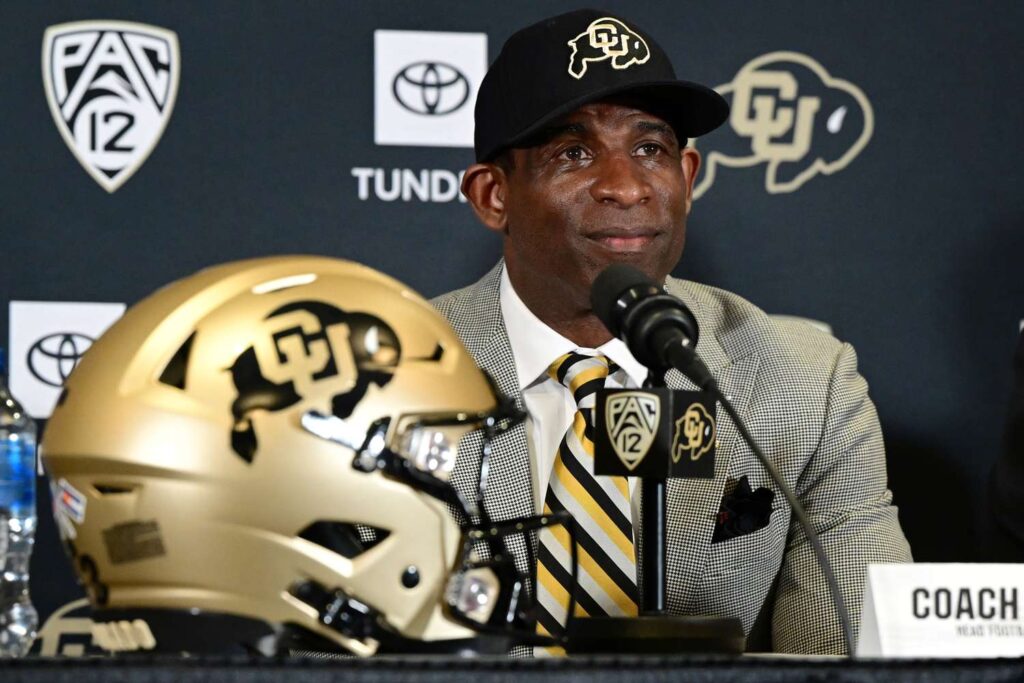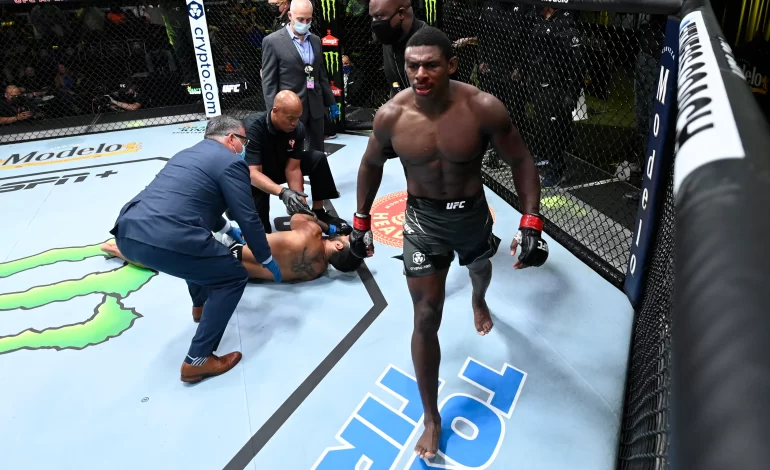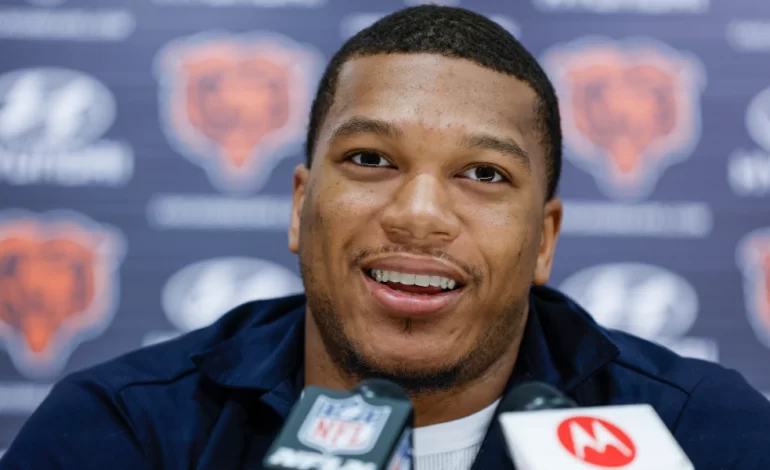The offseason is a time for relentless, irrational optimism. When schedules get released, you go mark down probable Wins and Losses, and conclude your team has a shot to go 11-1 (they probably don’t). Recruiting rankings get updated, and you have visions of your team ripping off multiple Championships in the next four years (they probably won’t). Bring in a new Coordinator and you can already envision the turnaround (okay, this one you’ve got a chance). But Head Coaching Hires? All bets are off. Everything is on the table. After all, he’s gotta be better than the last guy. Right?
Coaching hires are tricky business. Pick the right one, and the sky is the limit. Pick the wrong one, and you can set your program back years. And Heaven forbid you choose incorrectly twice in a row. Then you’re looking at a decade of unhappy fans, not to mention putting your own job in jeopardy. More likely, you’ll pick a coach who yields results similar to his predecessor(s), for better or worse. But this isn’t about those guys. We want to talk about the coaching hires that we can expect to make an impact.
It’s May. Spring ball just wrapped up. Is it irresponsibly early to try and determine which of these coaching hires will succeed, before a single game has been played? Hell yeah, it is. Are we going to do it anyway? Hell yeah, we are. This is what the offseason is for.
So What Makes a Good Coaching Hire?
I’ve judged coaching hires for years, like most College Football fans. And if we’re being honest, my hit rate isn’t any better or worse than anyone else. I’ve watched “Slam Dunk” hires both succeed and fail in roughly equal measure; same with the ones I was unenthused about. But I’ve learned a few things over the years in terms of who might be likely to flourish and who might struggle. Some conventional wisdom about coaching hires, upon closer inspection, maybe aren’t that wise after all.
One thing that I’ve found to be overrated is “culture fit”. You couldn’t dream up a more “Louisiana” coach than Ed Orgeron, for instance, but he lasted a season and a half after Joe Burrow and Justin Jefferson left. Meanwhile, Brian Kelly comes off like he thinks root beer is too spicy and couldn’t pronounce “Muffuletta” if you gave him three tries. But he won 10 games in his first season and looks to be building a monster in Baton Rouge.
What Was Behind Kelly Finding Success More or Less Immediately?
Well, that brings me to what I think is the most undervalued trait when it comes to coaching hires. Winners win. It feels pretty counterintuitive to look at it like that; after all, winning is the main goal. But sometimes proven winners get overshadowed by the “It” name. Kelly won two Division II National Championships at Grand Valley State, going 41-2 in his final three seasons. After a stop at Central Michigan, he went 34-6 at Cincinnati in three-plus seasons. Oh, by the way, he also happens to be the winningest Head Coach in Notre Dame history. He’s won everywhere he’s been, his horrible Southern accent shouldn’t have blinded us to that.
Chris Klieman, Lance Leipold, and Kalen DeBoer might not have been the sexiest names when they were hired, but they have 13 National Titles between them at the FCS, DIII, and NAIA levels. Seems like we shouldn’t be surprised they’ve found success, either. There are never any sure things, but “Winners Win” is going to pan out a lot more often than not.
So Who Has a Good Reason to Be Optimistic?
What follows are the five best Coaching Hires of 2023. Coaches who are charged with resuscitating a once-proud program, getting a team over the proverbial hump, starting completely over, or something in between. Alternatively, there’s one inexplicable, completely uninspiring hire that we’ll talk about as well.
We’ll call it “Five Studs, One Dud”.
5. Deion Sanders, Colorado

I have no idea if Deion Sanders will succeed in Boulder long-term. I’m pretty sure they’ll be terrible in 2023. Vegas has them pegged at 3.5 wins for their Over/Under total, and as I sit here today the Under looks like a winner. They’ve leveraged a fairly recent NCAA rule that allows them to effectively cut and replace as many scholarship players as they want. And when I say “leveraged”, I mean a near-100 percent roster turnover. Despite this, they still don’t have a great roster. Or even a good one, really. They have some nice pieces at the skill positions. But there’s not much depth and they’re probably going to get obliterated up front all season.
So Why Do I Like This Hire?
Having said that, they were putrid in 2022 (1-11) and for that matter, have two winning seasons since 2006. They’ve been as irrelevant as irrelevant gets for a decade and a half. Even if Sanders doesn’t win big, or even at all, he’s at least made them relevant. For better or worse, he’s making people think about Colorado football. That alone gets him on this list; they needed someone to come in and make drastic changes and make the program matter again. I can’t imagine anyone else could have done as much in that regard as Coach Prime.
In terms of on-field optimism, Sanders had a successful run at Jackson State, going 27-6 in three seasons with two SWAC titles and a couple of Top-20 finishes. He did so by out-recruiting his competition, mostly by just being Deion Sanders. Will that be as successful when he’s competing for recruits against the likes of Oregon and USC? Seems unlikely. But this still feels like the best move Colorado could have made and gives this coaching hire a slight edge over Florida Atlantic hiring Tom Herman.
4. Kenny Dillingham, Arizona State
Oftentimes, you’ll see a school pivot from one coach and hire someone who is completely opposite. It’s somewhat shortsighted, but it happens a lot. On the surface, it may look like that’s what is happening here. Kenny Dillingham is in many ways the antithesis of Herm Edwards. They are both humans who inhabit the same planet and coach football. Past that, they don’t seem to have much of anything in common. But I think there’s more to it in this case.
Edwards was fired in September following a home loss to Eastern Michigan that dropped Arizona State to 1-2 in a season in which they finished 3-9. An NCAA investigation into alleged recruiting violations had resulted in a mass exodus of both players and coaches. Their 2022 recruiting class was ranked 103rd nationally and last in the conference. The offense was basically average (67th) but the defense was awful (104th). There wasn’t much to like, and this job wasn’t all that attractive when it opened.
Not Great, Bob. Who Do You Get To Fix That?
Understanding why I’m a fan of this hire requires a little bit of context about where the Sun Devils stand currently and what they need to do to get back to being a factor in the PAC-12. They needed to find a coach with the ambition, drive, and energy to improve recruiting in a big way, and someone that the fans and boosters could get behind. And it was never going to be a quick fix, they needed someone to be in it for the long haul. And it was unlikely to be an attractive opening to established, experienced head coaches.
Enter Dillingham. The 33-year-old ASU graduate arrives off a string of Coordinator stints at Oregon, Florida State, Auburn, and Memphis. He already improved the roster with both high school recruits (43rd nationally for the 2023 class) and via transfers (13th). He has his hands full, and he probably won’t see a ton of success immediately. But given the cloud hanging over the program and his extensive background at the school, it’s likely that he gets a little more time and patience than he might somewhere else, and is exactly the type of coach they needed to go after.
3. Hugh Freeze, Auburn

Auburn has been trying to find some semblance of stability and normalcy for what seems like my entire adult life. By and large, they’ve found neither of those things. Bryan Harsin is a good football coach (69-19 in seven seasons at Boise St), but he was an odd fit for Auburn from the get-go. A 6-2 start in his first year went off the rails when Bo Nix got hurt. Despite nearly beating Alabama in the Iron Bowl to close out the season (we’ll be digging into that game one of these days, What-If style), they lost their bowl game to finish 6-7. A ton of roster turnover and one ill-conceived smear campaign later, he entered 2022 firmly on the hot seat. Harsin was put out of his misery after a home loss to Arkansas dropped Auburn to 3-5. The perpetual search for stability continued.
Now, if you’re looking for someone to inject stability into your program, Hugh Freeze may not be high on your list. He has some baggage from his time at Ole Miss that resulted in his resignation and a one-year Show Cause penalty. After serving a penance of sorts at Liberty, he’s back in the SEC, in a situation that feels like it could end in one extreme or the other with not much in between.
So Why Freeze?
Well, we can start by acknowledging that Auburn is willing to overlook some stuff in their coaching hire if you can prove you’re capable of certain things. Those things include but are not limited to: Score lots of points, Recruit really well, and beating Alabama more often than most. Those three attributes will get you a lot of leeway on the Plains. Guess what Hugh Freeze has a track record of doing? Yup.
Now we’re not going to pretend for a second that Ole Miss was the only SEC school breaking recruiting rules around impermissible benefits. Yes, they were dumber and more brazen about it. But in theory, that won’t be a concern for Auburn in the NIL landscape, in terms of being tempted to do things in an underhanded fashion. In fact, Freeze is already off to a good start in that regard. Auburn’s 2023 high school class finished 23rd nationally and their transfer class is currently in the top Five.
Auburn currently has a Win Total of 6.5 at most sportsbooks, and as it stands now they look to be a decent bet to get to seven wins.
2. Matt Rhule, Nebraska
I was reluctant to rank Rhule this high because I’m still carrying some scar tissue from believing in the Scott Frost hire. But his track record suggests that in terms of getting things turned around at Nebraska, it’s a matter of “when” and not “if”.
One year after fielding the most competitive 3-9 team I’ve ever seen, Frost was let go after a home loss to Georgia Southern dropped the Huskers to 1-2. After going 19-37 from 2018-2022, Nebraska needed a hard reset.
And Hard Resets appear to be Matt Rhule’s jam. He rebuilt both Temple and Baylor under arguably worse circumstances. His time with the Carolina Panthers notwithstanding, he has a demonstrated ability to revive a program from the ground up.
But When Though? Nebraska Fans Have Been Waiting a While…
What will be most interesting to me is what Rhule’s timeline looks like. He’s had a definite M.O. up to this point, which goes something like:
-Putrid in Year One (2-10 at Temple, 1-11 at Baylor)
-Decent in Year Two (6-6 at Temple, 7-6 at Baylor)
-Double Digit wins in Year Three (10-4 at Temple, 11-3 at Baylor)
Rhule’s first year at Baylor was 2017, and a lot has changed since then. Mostly to his benefit. The Transfer Portal will obviously allow him to rebuild his roster much quicker, and he’s already started by bringing in 12 transfers to supplement his 24th-ranked high school class. Also of note is the difference in what type of players he and his staff are prioritizing. They’ve shown a definite focus on improving the team’s overall speed and athleticism, believing they can coach up players who have those raw athletic traits but may not be highly-rated recruits.
Nebraska bit a big bullet by letting Frost go just a few short weeks before his contract buyout dropped by around $7 million. But it was a necessary move; it was clear that it wasn’t going to work and they needed to get a head start on finding his replacement. Getting Rhule looks like it has a really good chance to make Nebraska feel like that was worth it. I like his chances to accelerate his timeline and skip that awful first season and get to a bowl game in Year One.
1. Luke Fickell, Wisconsin

Wisconsin was the pretty clear winner in this coaching hire cycle, and they did it by surprising a lot of people, myself included.
After a third straight 2-3 start, Paul Chryst was fired and Defensive Coordinator Jim Leonhard was named Interim Coach for the remainder of the season. Wisconsin went 5-3 the rest of the way and I was like almost everybody else. I expected them to just hire Leonhard and call it a day. It would have been easy. It would, as far as I can tell, have been well-received. But sometimes, when it comes to coaching hires, a school just feels like dropping a bomb. And Wisconsin certainly dropped one here.
Fickell, for his part, surprised me as well. I honestly thought he’d never leave Cincinnati for anywhere other than Ohio State. Other than the one season he spent on Injured Reserve for the New Orleans Saints, he’s lived in Ohio his entire life. A four-year starter on the defensive line at Ohio State, he was also a Buckeyes assistant for 15 years. He met his wife at Ohio State, and they have six children. It never seemed like he was in any hurry to uproot and leave Ohio.
A New-Look Wisconsin
Snagging Luke Fickell might not have even been the most surprising coaching hire that Wisconsin made. Bringing Phil Longo over from North Carolina to install his Air Raid offense is the mother of all departures, style-wise. Bringing in a quarterback who has thrown for over 7,000 yards in the last two seasons in this scheme helps. So welcome aboard, Tanner Mordecai. As an added bonus, stud Running Back Braelon Allen, who is coming off consecutive 1,200-yard seasons, won’t be seeing nearly as many eight and nine-man boxes as he’s accustomed to.
Fickell needed a warm-up year at Cincinnati to get things how he wanted them. Then he won 11+ games three of the next four years (and 9-1 in 2020, for good measure). Like the others, he’ll have the luxury of being able to turn around the roster much quicker than before. Wisconsin is listed at 8.5 Wins for 2023 at most books, and given their schedule, taking the Over doesn’t feel so risky.
Wait, You Said Five Studs, One Dud. Which Coaching Hire Did You Not Like?
Scott Satterfield is, by all accounts, a good and decent man. This isn’t a personal attack. But had he stayed at Louisville, he would absolutely have been on my Hot Seat List come August. Satterfield had come over from Appalachian State, where he had won 10+ games in three of his last four seasons. But he mostly just spun his wheels with the Cardinals. 25-24 in four seasons doesn’t ordinarily get you poached. And certainly not by a school that is 11 months removed from playing in the CFP.
So imagine my surprise when Cincinnati decided to go after Satterfield to replace Fickell. When a significant portion of the fan base is willing to show up and help load the moving truck, it’s not a great sign. I don’t know a ton of Louisville fans, but the ones I do know are ecstatic that they were able to move on from Satterfield without paying a buyout. If you lose a guy widely regarded as the best coaching hire of the offseason, and replace him with someone whose existing fanbase is not sad to see go, you get the Dud Award. Sorry, Cincinnati.
So How Confident Can We Be About These Coaching Hires?
Well, history suggests that in a few years, I’ll want to come back and edit out two of these names. That’s the nature of trying to assess coaching hires before games get played. The fun is seeing which one(s) I regret listing, and the ones I regret having left off. Alex Golesh starts winning games at South Florida and gets the Bulls to a bowl game, and I’ll feel like a jerk. I was equally high on the Dan Lanning, Kalen DeBoer, Brent Venables, and Billy Napier hires at this time last Spring. Talk about a mixed bag of results in Year One! So until proven otherwise, you may as well live under the assumption that your new coaching hire is the missing piece and greatness awaits. That’s what being an irrationally optimistic fan is about.
Eric Mulhair is the Co-Host of The South Endzone Podcast and a contributing writer for Belly Up Sports covering College Football. You can follow him on Twitter for the most up-to-date info on Podcast/Article releases, or even just to argue about College Football.






